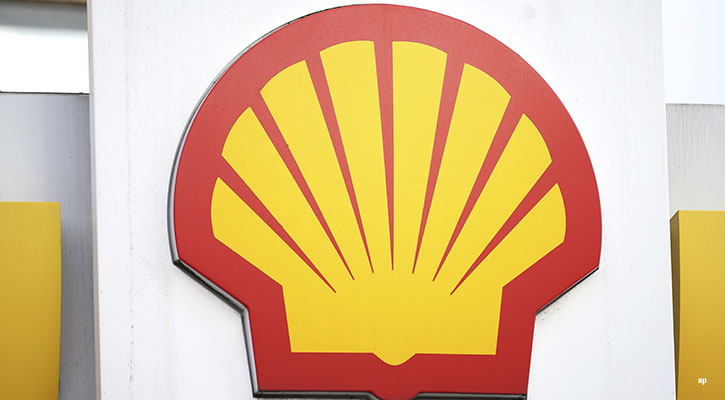Greek Tragedy, Act II
It’s been a turbulent week for equity and bond investors alike, with Greece causing tragedy on both markets. The FTSE 100 index dropped more than 3% from peak to trough this week as investors once again fretted about the future of the Mediterranean economy, the likelihood of contagion, the prospect of sovereign collapse, and the exposure of local banks’ to the incumbent nations.
A week of wrangling between the leaders of those nations who are stumping up the cash for Greece’s latest bailout and Greek citizens taking to the streets in protest at austerity measures and leadership has culminated in Greek Prime Minister George Papandreou today kicking finance minister George Papaconstantinou out of his post in favour of Evangelos Venizelos. The former is now to oversea the country’s energy portfolio, while the latter leaves behind the country’s defence mandate.
On Thursday, the EU said the next tranche of Greece’s original bailout funds will be released at the end of this month. “So Greek collapse has been averted for another few weeks,” commented Kathleen Brooks, Research Director UK EMEA at GAIN Capital, this morning, adding that this will allow Greece to finance its next round of coupon payments and redemptions on short-term debt that come due in July/ August. I will quote extensively from Brooks’ commentary, as she certainly knows a thing or two about the fixed income market and current events:
“The Eurozone has bought itself some time to try and resolve the deadlock between Germany and the ECB on a long-term solution to try and get Greece back on the path to solvency. President of the EU Council Juncker said yesterday that a decision on a long-term solution will not be made until mid-July. This means that next week’s EU leaders’ meetings will be talking shops only and expectations are low for any concrete solutions to emerge in the immediate future.
“However, today’s meeting between the French and German leaders will be interesting. While the Greek PM has announced a new cabinet, including a new finance minister this morning, everyone knows that the powerbrokers who will decide the ultimate “solution” to this crisis are Germany, France and the ECB. Essentially they will have to make a decision over the next month on the fate of Greek bondholders. While political risk in Athens may dent market sentiment, Greece’s power and reach to influence things is limited.
“Right now Germany’s desire to involve bondholders by extending the duration of their Greek debt is met with resistance by France and the ECB. Today’s meeting is likely an attempt to find some common ground. It is widely expected that Germany will eventually converge towards the ECB’s view that there should be no default, no rating downgrades and private sector involvement can only be done on a voluntary basis.
“Markets hate discord and uncertainty. If the individual strands of power within the EU don’t agree on anything other than Band-Aid solutions to this crisis then this reduces the chance of Greece experiencing anything other than a disorderly default.”
Magpies Eye the Glint of Gold
Amid such uncertainty, the much-treasured yellow metal is once again a twinkle in speculative investors’ eyes. Gold now trades comfortably above $1,500 per Troy ounce and it seems a long time since commodity observers were harking about $1,100 being the next milestone, and then $1,200, $1,300, $1,400…
Yet a Morningstar colleague of mine this week spoke to a well-known investor in the United States who believes loose monetary policy, demand from emerging markets, and sovereign debt woes could push gold prices to $2,300 an ounce in the coming years.
Frank Holmes, CEO and CIO of U.S. Global Investors says that history tells us that whenever you have negative (real) interest rates, gold starts to rise in that country’s currency. Further, with monetary policy tightening being postponed on an almost monthly basis on both sides of the Atlantic, GDP per capita on the up for 50% of the world population, and fear fuelling much of current trade, Holmes is very bullish on the potential size of such a rise. This excerpt from his recent interview explains one of the key factors:
“Now, the fear trade, which is most interesting, is that central banks from Europe have been big sellers and one of the things that's going to change in [autumn] is Basel III, which is going to change the Tier 1, Tier 2, and Tier 3 that these big banks have to keep for capital. Gold has always been carried at a discount but sovereign debt has not been. So basically the banks have been buying Greek bonds to get a higher yield. That's been a disaster. So starting in [autumn], gold is going to be basically priced mark-to-market, not at a 50% discount.
“Central bankers are in fact going to continue for the past two years being net buyers of gold as a way to diversify. They're not going to buy 10% or 20%, but just a 3% increase in purchases of all central bankers in the world is very profound and significant [enough] to take gold to $2,300 an ounce. Where would that be? That would be its 1980 adjusted price.”
Double Dip Double Quick?
The term “double dip” has resurfaced in the U.S. recently, where economic reports continue to show the recovery is flagging. Naturally, investors around the globe are watching with bated breath for a return to recession in the world’s largest economy will have severe knock-on effects for other developed nations. Morningstar Director of Economic Analysts Bob Johnson, however, believes the U.S. economy still has some legs and there’s more room to run in the recovery.
“I say it again and again but the consumer is 70% of the economy, they are what drives the economy. You watch the consumer, you’ll figure what's going to happen to the rest of the economy.
“So far we've slowed a little bit in the economy but we have not slowed dramatically. The inflation has had, unfortunately, somewhat of a negative effect on the economy as it always does and as we might have expected. The good news, and the reason I really haven't panicked in terms of the economy just yet, is because there are some early signs that inflation is beginning to come in.”
Asked for a definitive answer on whether the U.S. is entering a double dip, Johnson is finite: “Absolutely not.”























